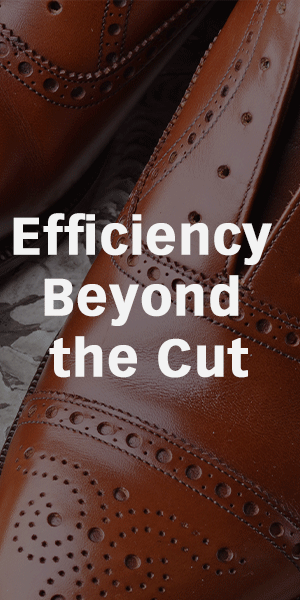In-house expansion

Luxury group Hermès will continue its drive to open new leathergoods factories in France in the next four years. But when it comes to footwear, it will be with partners in Italy that it builds up its in-house manufacturing network.
The executive chairman of luxury group Hermès, Axel Dumas, has paid tribute to the contribution of footwear to positive full-year results for 2023. Hermès reported revenues across all business segments of €13.4 billion, up by 15.7% year on year.
Its leathergoods and saddlery business contributed €5.5 billion to the total, increasing by 11.8% year on year. Hermès counts sales of other leather items, including shoes, belts and gloves, in its clothing and accessories category, for which it reported revenues of nearly €3.9 billion, an increase of 23.1% year on year.
On presenting these results, Mr Dumas celebrated the strong growth that clothing and accessories continue to enjoy, picking out footwear specifically, as well as ready-to-wear, as having presented 2023 collections that have proved particularly popular with customers.
Homemade products
Across all categories, the group made 55% of its products in its own workshops last year and, in total, 74% of its products were made on home soil in France. This applies to its high-value handbags more than to footwear. It says its objective is to preserve and perpetuate a “responsible, artisanal production model”. It also acknowledges how rooted it is in its home country, where it already has a total of 52 production sites.
It created 2,400 new jobs in 2023, taking its total number of employees to 22,040, of which 13,700 work in France. It has brought on board a total of 5,400 new employees in the last three years, 3,300 of them in France; it has doubled its overall workforce in the last ten years. Across the company, 60% of Hermès employees are women. The group also runs eight training schools. It plans to open four new leather workshops over the next four years and to carry on recruiting at 2023 levels. “We are going to continue along those lines,” says Mr Dumas. “We have no intention of slowing down.”
For its leathergoods division to continue to have success, the main constraints Hermès has to overcome are limits to production capacity and to the availability of raw material of the high quality that the group requires. Its insistence on opening new leathergoods factories shows that it is planning ahead and that its plans are ambitious. This is because, the group reveals, each of the new factories adds 7% to its leathergoods production capacity. Four new factories in the next four years will, therefore, increase current production capacity by 28%.
Italy for footwear
Where does this leave footwear, about which the executive chairman has spoken so enthusiastically? If France is the place of choice for the production of its luxury leathergoods, Hermès relies heavily on partner manufacturers in Italy for producing its footwear collections. Products in its current footwear offering, such as its Veo Bottines men’s boots, its Aphrodite pink Paris moccasins for women, and its Bouncing sneakers for both women and men, demonstrate the range’s enormous variety. But something they all have in common is that they are made in Italy.
In 2023, Hermès talked about the importance, generally, of its partner suppliers and mentioned the idea of vertical integration. On presenting the full-year results, Mr Dumas said the group intends to speed this plan up now, and he singled out shoes as one of the categories for which he wants to bring production, at least partly, under the Hermès umbrella. He views this as part of the wider strategy of keeping production in house as a way of securing supply of key materials and products.
Minority stakes
While the group’s footwear manufacturing partners in Italy are creative, talented, reliable and able to offer the capacity required, they are also independent. If Hermès becomes an investor in these businesses, though, they can keep some of this independence and still become part of the in-house production panorama. Mr Dumas has stated clearly that Hermès will now seek to acquire a minority stake in “certain of our historical partner manufacturers”. The group is proud of the strong, long-lasting relationships it has built with key suppliers, the executive chairman makes clear, with the length of time it has worked with its top 50 suppliers averaging out at 19 years.
Beyond that, he says it is in his nature to be optimistic and that he is confident about the future of the company. He points out that Hermès is in the business of creating desire. “We exist to give our customers opportunities to bring pleasure into their lives,” he explains. “This is something that is impossible to turn into a bureaucratic exercise and we do not take for granted our ability to keep creating that desire among our customers.”
Credit: Shutterstock/NeydtStock












